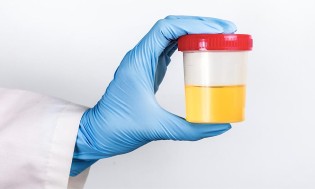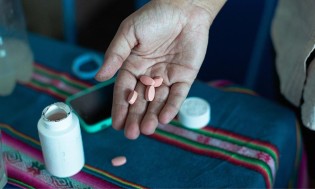Research Highlights
Featured Articles
New pancreatic cancer research may improve detection and treatment
About 1.7% of people in the United States will be diagnosed with pancreatic cancer at some point in their lives. Despite...
Cancer, NIH Research, Pancreatic cancerWhat makes urine yellow? The answer lies in your gut
Ever wonder why urine is yellow or why skin looks yellow in people with jaundice? Scientists have known for more...
NIH Highlights, NIH ResearchOf mice and medicine: Our favorite NIH research highlights from 2024
1. Could a new molecule prevent blood clots without increasing the risk of bleeding? Blood clots can form when substances in...
NIH Highlights, NIH Research4 discoveries beyond the brain
Neurodegenerative diseases—such as Alzheimer’s disease, Parkinson’s disease (PD), Lewy body dementia (LBD), and amyotrophic lateral sclerosis (also known as ALS...
NIH Research, Lewy Body Dementia, Parkinson's diseaseCan bacteria in your gut make you want to exercise?
Have you ever wondered why some people enjoy exercise while others find it unbearable? New research hints at a surprising...
NIH Research, ExerciseMore than two decades of NIH research gives answers on a rare disease affecting bones, skin, and the endocrine system
Why do patients with fibrous dysplasia/McCune-Albright Syndrome break their bones so easily? Or hit puberty as early as infancy?...
NIH Research, Rare Diseases, Dental Health, Skin ConditionsMaking it easier to get HIV treatment
HIV research has come a long way since the epidemic began in the 1980s. Today, people with HIV can live...
AIDS, HIVPregnancy-related deaths are on the rise…and sepsis is a big reason
More and more people each year are dying from complications related to pregnancy and delivery. In the United States, deaths...
Infectious Diseases, Pregnancy, Women's Health, SepsisH20 for healthy aging
Water is essential for just about every function in our bodies, from keeping our organs working properly to regulating our...
NIH Research, Healthy Aging, NutritionResearchers are exposing troubling consequences of air pollution
The air we breathe can sometimes contain tiny particles called particulate matter (PM). These particles come in different shapes and...
Air Pollution, Environmental Health












